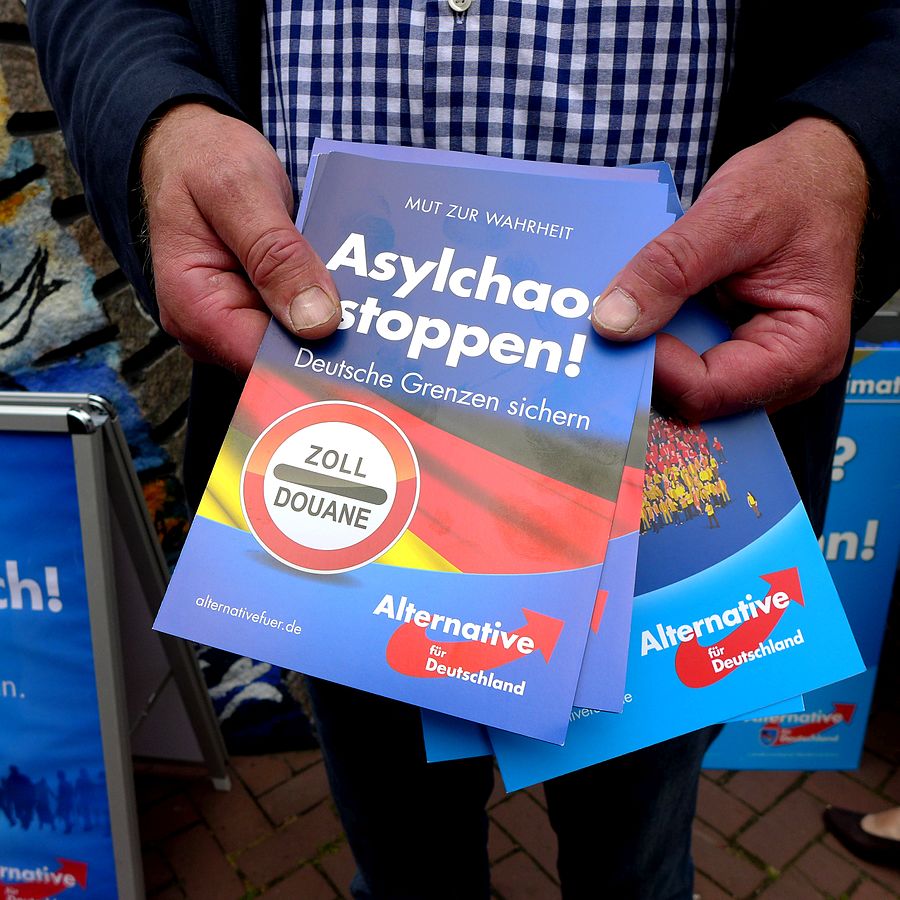Nationalism is back in Germany. What does that say about Europe?

Flyers handed out by Alternative for Germany in 2016. The top flyer, which
translates to “Stop Asylum Chaos!”, appears to promote stricter border controls.
Jonah Carlson - Since the end of World War II, nationalism in Germany has been a subject surrounded by much taboo. After all, it was the racist and destructive nationalism pushed by the Nazis that produced many of the atrocities of World War II, including the Holocaust. However, that taboo appears to be fading with the rise of the political party Alternative for Germany (AfD) and the reemergence of the German far right. Kirsten Grieshaber explores Alternative for Germany’s rise, as well as resistance to the growing political party, in a recent article with the Associated Press.
Nationalism is an ideology that promotes the idea that every nation – a people united by a common heritage, which can range from cultural roots to linguistic background – should have a distinct state. The definition of a "nation" can lead to certain groups being excluded, at least in the minds of some. In the history of Nazi Germany, nationalist ideology evolved into fascism and produced horrific violence against a variety of groups, notably Jewish individuals, who were not deemed as “German.” The recognition of that terrifying and brutal past dispelled the idea of nationalism in many German minds for the rest of the 20th century, and into the 21st. However, shifts in European politics are bringing nationalist ideas back to the forefront. AfD, a party which overtly espouses German nationalism along racial lines and has called for the expulsion of millions of migrants, has grown rapidly in recent years. With recent elections, it became the largest party in both Saxony and Thuringia. In a response to this rise, millions of individuals have joined protests against the party – the German government estimates as many as 2.4 million have participated in them, according to Grieshaber. The protests set the stage for a prolonged battle of ideologies in German politics that could seriously shape both the country’s domestic and international policies.
The rise of the far right and the reemergence of nationalist ideas is not limited to Germany. Increasingly, it is a European phenomenon: take the growth of National Rally in France, the Sweden Democrats in Sweden, and the Brothers of Italy in Italy. Such growth appears to be a reaction to a variety of phenomena. An increasingly globalized economy, increased flows of immigrants and refugees, and economic difficulties appear to have agitated conservatives to more nationalist and populist action. How centrist and left-leaning parties will approach responding to these rising sentiments is a question set to play out in elections over the course of the next decade.
Photo source. Oxfordian Kissuth, CC BY-SA 3.0, via Wikimedia Commons.

